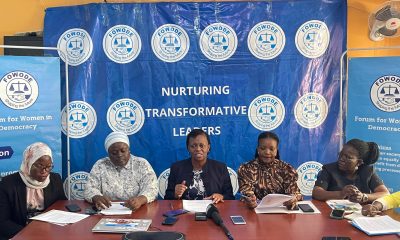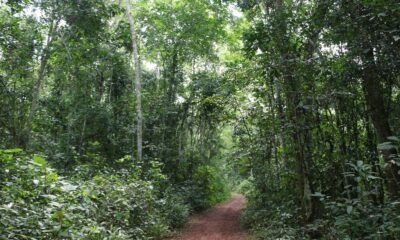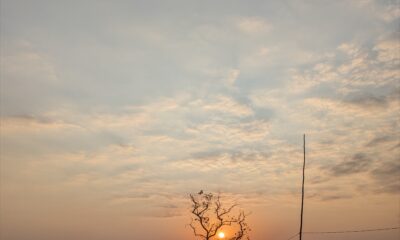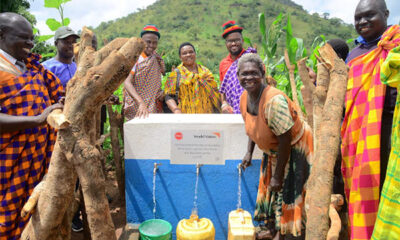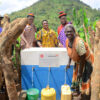Health
WWF ’60+ earth hour’ walk against plastic waste

The Country Director WWF David Duli giving a speech at 2019 earth hour Serena.
As the rest of the world prepares to commemorate the ’60+Earth Hour’ events that are organised by the World Wide Fund for Nature, in Uganda, attention will shift towards creating awareness about the dangers of plastic waste in the country.
According to WWF Uganda office, a march has been organised to take place on February 13, 2020 from the City Square to KCCA Lugogo grounds.

last year, UCU Students showcasing plastic to make house fences.
The Earth Hour is a worldwide movement organized by the World Wide Fund for Nature. The event is held annually encouraging individuals, communities, and businesses to turn off non-essential electric lights for one hour. This year’s Earth Hour will be observed on March 28, 2020 from 8:30 to 9:30 p.m. (usually the last Saturday of March.)
But as other countries focus on reducing carbon footprint, in Uganda, WWF is trying to raise awareness about the dangers of plastic waste. It is estimated that some 600 tones of plastic is disposed of as waster in Uganda, largely in the form of used bottles and kaveera. This waste goes into the drainage channels and often ending up into lake Victoria where it has done considerable damage.
WWF says this year’s theme is: “Raising Awareness About Plastics”. The Speaker Rebacca Kadaga will flag off the match.
Besides the march, the fund wants participants to engage in organising regular Community Clean ups, outreach programs, symposia with recycling companies and engaging with the media.
Provision of dust bins, recycle sign posts to the public are some of the issues that WWF will endeavour to discuss with recycling companies.
WWF Uganda Country Director David Duli says “plastic free workshops” should be adopted. He cautioned recycling companies to innovate in this field by making reusable water bottles to substitute for plastics.
“Rather than Parliament buying water at conferences and workshops, they may decide to just serve water in a jag with a reusable cup. We will avail dispensers along the road during the match and we call upon everyone to come with their own reusable bottles from home.”
“We need to first change as individuals, even if I buy water somewhere I make sure that I pour it in my personal bottle so that the plastic can be disposed off very well,” Duli added.
Duli urged other Members of Parliament to join Kadaga in the march to ensure the public is aware of the need for plastic recycling and regulation.
Comments



